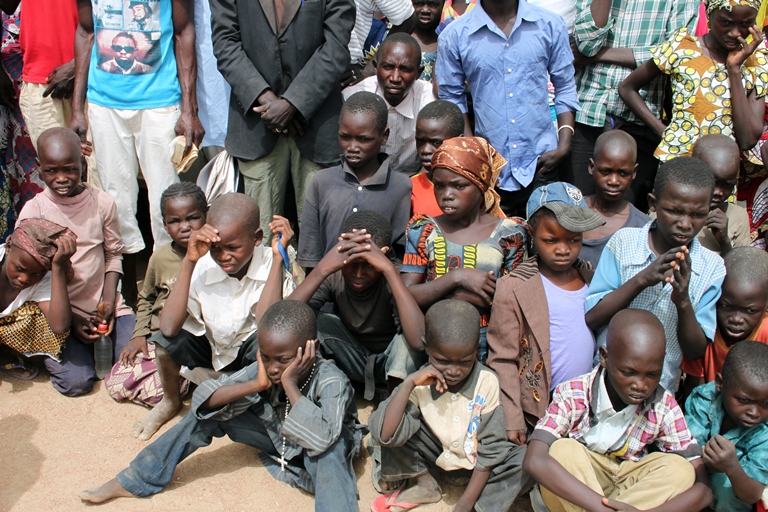|
Boko Haram is spreading terror in Cameroon--but world is not paying attention, bishop says The chapel has been burned down and, according to eyewitness reports, there are human skulls lying in the streets. By Eva-Maria Kolmann NEW YORK—A bishop in Cameroon has sent out an urgent message that Boko Haram is increasingly spreading its reign of violence and death into his country—but that media around the world are paying no attention. In a memorandum made available to the international Catholic charity Aid to the Church in Need (ACN), Bishop Bruno Ateba of the Diocese of Maroua-Mokolo, complains that the violence perpetrated in northern Cameroon by Boko Haram organization has not drawn significant attention. “What happened in Paris during the attacks there is something we experience here every day, and yet nobody in the world says anything about it. Instead the attention of the world is focused above all on the Middle East,” the prelate writes. In his diocese alone, since the last quarter of the year 2014, two senior diocesan staff, three catechists and more than 30 faithful have been murdered; and there have been numerous abductions.
Plus, the bishop added, numerous mosques have been burned down and the imams have had their throats cut, because "they refused to obey the orders of Boko Haram.” Since as early as December 2013 the native Muslim community within Cameroon has adopted an increasingly clear stance against Boko Haram, and Muslims have often come to the aid of Christians threatened by the terror group that is “sowing panic” in northern Cameroon. Just as it does in Nigeria, Boko Haram also recruits children in Cameroon, ages 5-15, enticing them with financial benefits inducements for their families, simply abducting them by force, the bishop reports. This year alone, no fewer than 2000 Cameroonian children and adolescents have been seized by Boko Haram—including a number of girls. The infrastructure of the affected region – already one of the poorest in Cameroon – has been severly damaged. According to Bishop Ateba, the terror attacks have caused the closure of more than 110 schools and 13 health centers, while many police stations have been destroyed. The Diocese of Maroua-Mokolo is today home to more than 55,000 displaced Cameroonians as well as refugees from Nigeria. Many have sought shelter with friends and relatives, but more than 22,000 are still hiding in the bush. The situation is particularly bad in the community of Amchidé, where a series of attacks by Boko Haram have caused the entire population to flee. As a result, the pastoral activities in the area have come to a complete standstill. The chapel has been burned down and, according to eyewitness reports, there are human skulls lying in the streets. Bishop Ateba addresses world leaders as follows: “Today we beseech your attention, your prayers and your help. Help us to bring an end to this nameless brutality that is destroying all hope for the future and bringing to nothing all the hard work of generations of believers.” He praises the courage of the faithful, who continue to gather together to pray, despite the dangers and their fears: they are like “glow-worms of faith, illuminating the night,”he writes. ACN is proposing to help with $18,000 for the construction of a multi-purpose hall where the 5,200 Catholic refugees in the Minawao camp in the Diocese of Maroua-Mokolo can gather to pray, attend Mass and receive pastoral and practical support. ACN photo: Refugees in the Diocese of Maroua-Mokolo |
|
|

